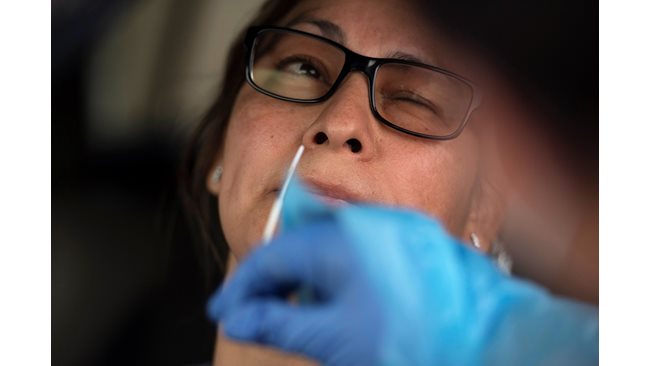–
–
–
This was found by 86,300 PCRs by American researchers. Their hypothesis is that it is related to our internal clock
The accuracy of tests for COVID-19 with polymerase chain reaction with reverse transcription (RT-PCR) follows a 24-hour model, according to a new study. The highest number of true positive results is observed in tests in the early afternoon. False positives increase at night, according to a new study. In addition, the afternoon is thought to be the most likely time of day when both symptomatic and asymptomatic infected will transmit the SARS-CoV-2 virus, which causes COVID, to other people.
A team from Vanderbilt University in Nashville, Tennessee, reported these findings from its study in the Journal of Biological Rhythms. According to him, the PCR test is almost 2 times more likely to show an accurate positive result if the person is examined in the middle of the day and not at night. The most accurate tests took about 14 hours. The viral load turned out to be lower after 8 p.m. If the test was done at that time, there could be a higher risk of a false-negative result, the researchers said.
When the PCR test gives a false positive result – which means that the person does not have SARS-CoV-2 infection, but the test is positive – the error creates unnecessary stress. However, a false negative result – when someone has an infection but the test is negative – is the worse option. Treatment is delayed with unknown consequences, and the infected person may inadvertently infect people with whom he communicates.
More than 86,300 clinical trials were analyzed. According to them, the researchers concluded that the time of day when PCR is performed may increase the risk of a false result.
But why!?
It is probably related to our internal clock, the so-called circadian rhythms. They set a cycle in the work of the organs depending on the rhythm day and night. Probably the different reactivity of the organism depending on the time of day influences the behavior of the virus. The hypothesis is supported by research on other infections.
Dr. Carl Johnson, the study’s lead author, said in a university bulletin that taking tests at the optimal time of day improves their sensitivity and helps accurately diagnose people who may be infected but asymptomatic.
– .


